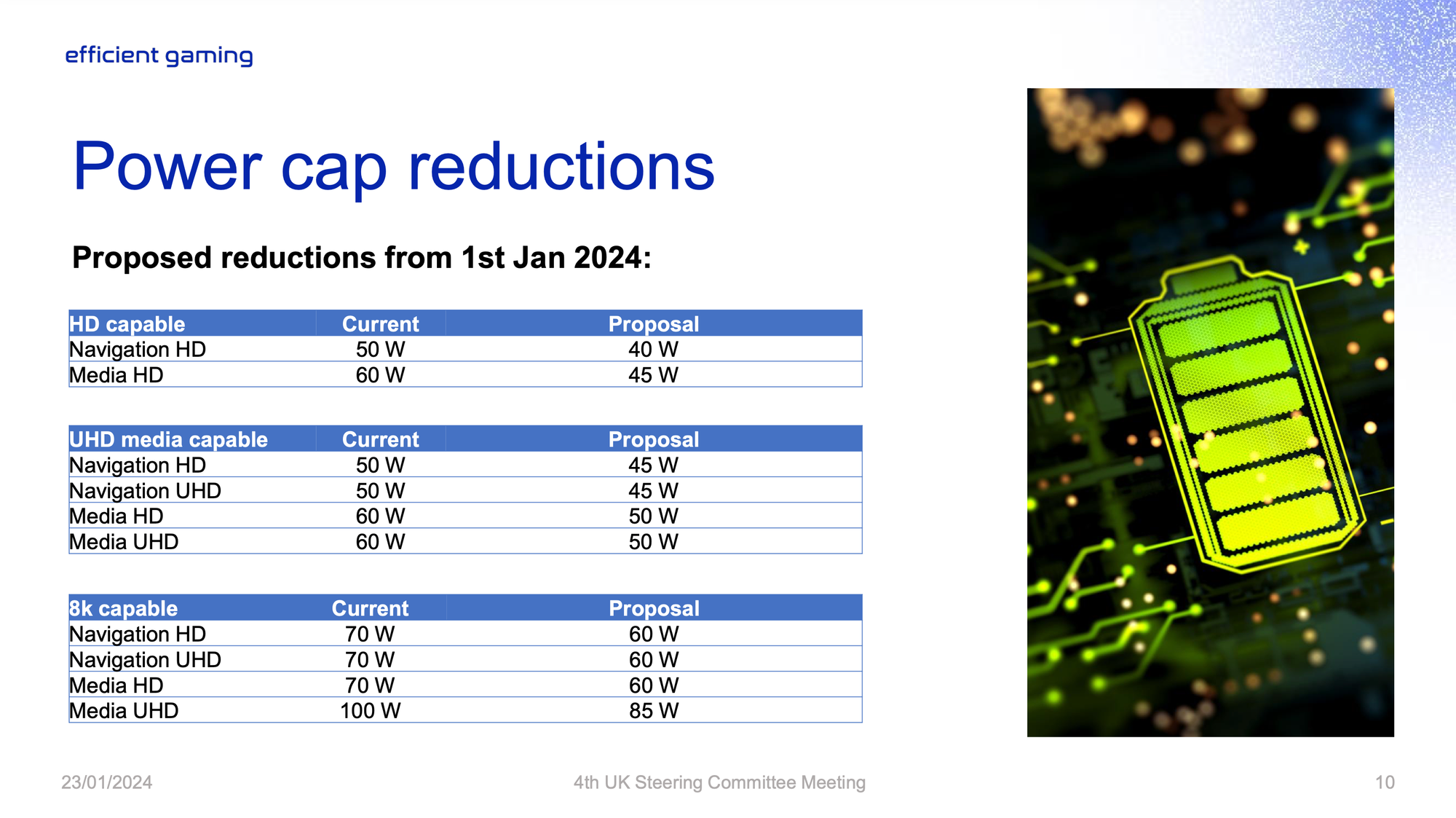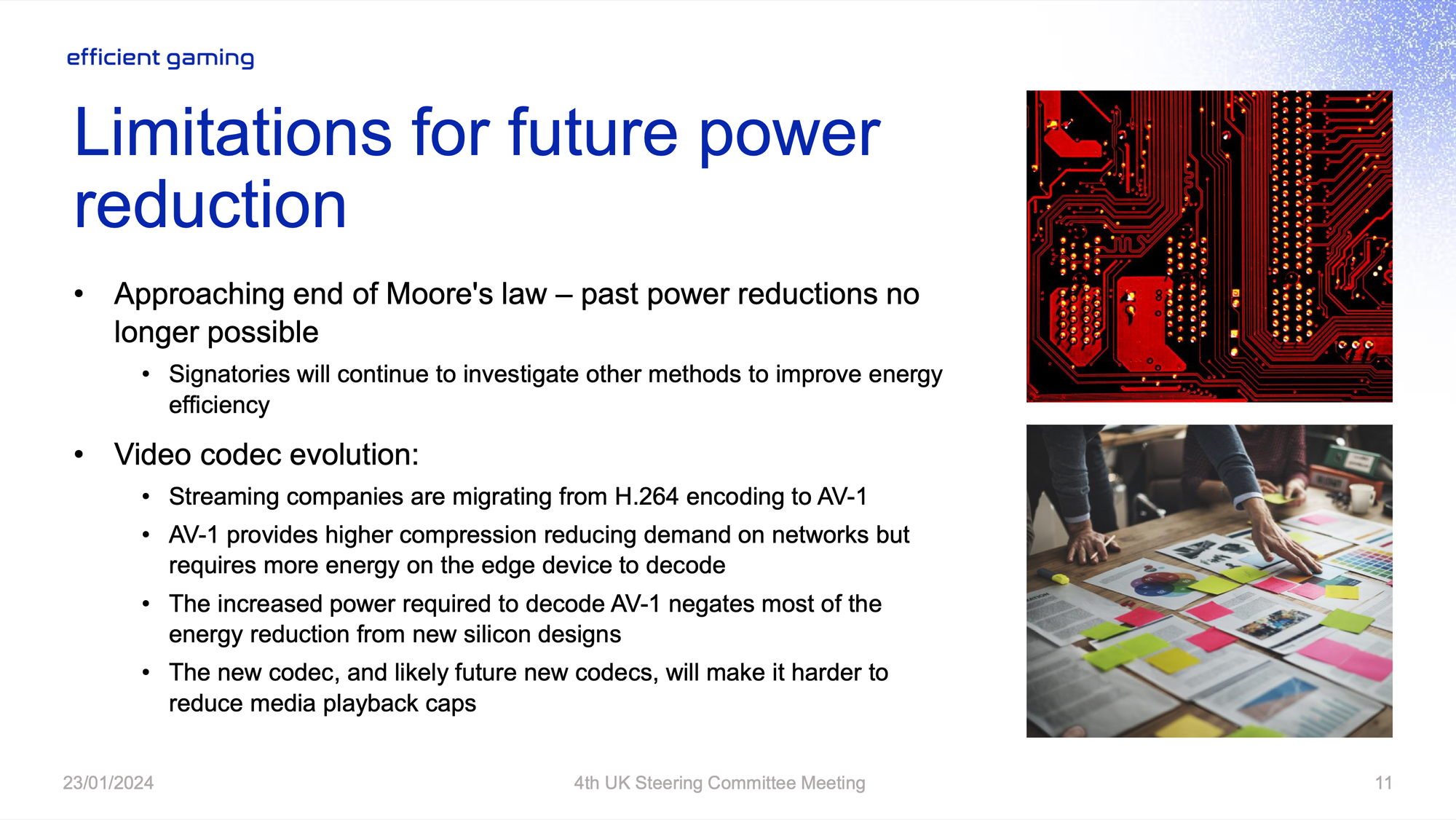GTG Links 39 – Estimating footprints for Roblox + reaching the limits of console energy efficiency ++ a primer on atmospheric rivers

Roblox full-year financial results for 2023 are out, and they got a ton of attention. With "Revenue was $749.9 million” what sort of emissions footprint might we expect from that? Based on last year’s industry average, I’d expect around 128k tonnes CO2e off the back of that, if Roblox has a similar intensity profile to the rest of the games industry. This would put them somewhere above Riot's and just below Ubisoft’s annual emissions (though that's compared to 2022 figures).
Do you know what would be great though? If we didn't have to estimate. For at least the past two years running their annual report (which even has its own ‘Environment’ heading!) has noticeably not contained a single word about emissions footprint, energy consumption, or anything. So until someone at Roblox decides to even take a stab at it, guesstimates are all we have.

An update on energy-efficient consoles
In the last week of January, the EU's energy-efficient games console voluntary regulation group met again (which includes reps from Sony, Microsoft, and Nintendo) for their annual presentation. There are a couple of interesting slides I want to draw your attention to. First, some newly proposed reductions to the 'power cap' for different modes of game console operation.

So a modest improvement in the limits to energy consumption of console gaming hardware with reductions of around 10 watts in most modes. To decode this table, "HD capable" consoles refer to 1080p capable devices like the PS4, Nintendo Switch, and the Series S, UHD means 4K capable consoles (the PS4Pro and, probably, the Xbox One X?) and 8K capable being the PS5 and Xbox Series X. And again, these power caps only address power levels in Navigation and Media playback modes. Gaming itself? Use as much as you see fit! Open wide the floodgates, crank the heaters, and spin up the open-cycle peaking gas turbines. And that's the good news. So if that is still looking a bit inadequate to anyone else, wait until you see the next slide.
It's not clear exactly which of the signatories gave this presentation (though my money is on Sony's Joshua Aslan), but here's the bad news:

So essentially, we can wave goodbye to the idea of modern gaming consoles using less power over time this generation – at it is perhaps the most important generation if the games industry is going to do its part to stave off the worst climate impacts. It's hard to argue with the technical assessment though because we are reaching the limits of shrinking transistors – chip making is now making them out of just a few atoms. This situation, coupled with streaming media moving to the (really quite impressive, by all accounts) AV1 codec means we may have reached the limits of energy–efficient ambition. Major bummmeerrrrrrrrr.
So if technology improvements aren't going to save us, then we're going to need to find other solutions – political and cultural ones. Something else is going to have to change. Check out the rest of the presentation and other items discussed here if you are so inclined.

System-on-a-chip integration coming to gaming PCs?
One of the main ways that game consoles have reduced their power consumption over the past decade is with system-on-a-chip integration. Well looks like AMD is launching an APU – an integrated CPU and GPU on one chip. If this becomes appealing to PC gamers and takes off, could it have an impact? It would have to get a pretty major uptake as a percentage of PCs to make a dent, but it's a good idea.

African gamer preferences:
“Looking at players' favourite game models, free-to-play was preferred, whether with ads (at 34% on average between the three countries, with a high majority in Senegal at 45%) or without ads with paid options (29%). This was followed by subscription models (24%) and paid games without ads (12%).”

Microsoft has a new report looking at trade industry (i.e. lobby group) alignment on carbon & climate
Remember the campaign to get them and other tech companies to ditch the US Chamber of Commerce support (as it is pretty anti-climate). Looks like, according to the new report [PDF], the C of C comes off looking the worst of all groups MS is a member of, but the report stops short of agreeing to the demand to leave. It was always a bit of a long shot. Here’s the key bit:
This report provides an overview of positions on eleven key climate policies held by eight organizations that are active in federal climate policy… The purpose of this report is to help us evaluate how well these trade associations align with our own sustainability goals and values, and to identify potential areas of collaboration or misalignment. Where there is misalignment, we will redouble efforts to engage with the trade association to drive closer alignment in their advocacy for a more sustainable future.
Research org Data & Society gives a rare endorsement of a bill on AI environmental impacts
Earlier today, @SenMarkey introduced the AI Environmental Impacts Act of 2024. D&S’s Brian J. Chen and @tamigraph explain why we’re taking the unusual step of endorsing this legislation. https://t.co/9rdwODyfMs pic.twitter.com/1cxT4rKCir
— Data & Society (@datasociety) February 1, 2024
With a more detailed explanation of why here:
After the jump for GTG Supporters – the politics of semiconductor supply chains, bitcoin energy measured by the US govt, EU 2040 targets "underwhelming", and an explanation on atmospheric rivers and why they're dumping more and more water on California.


